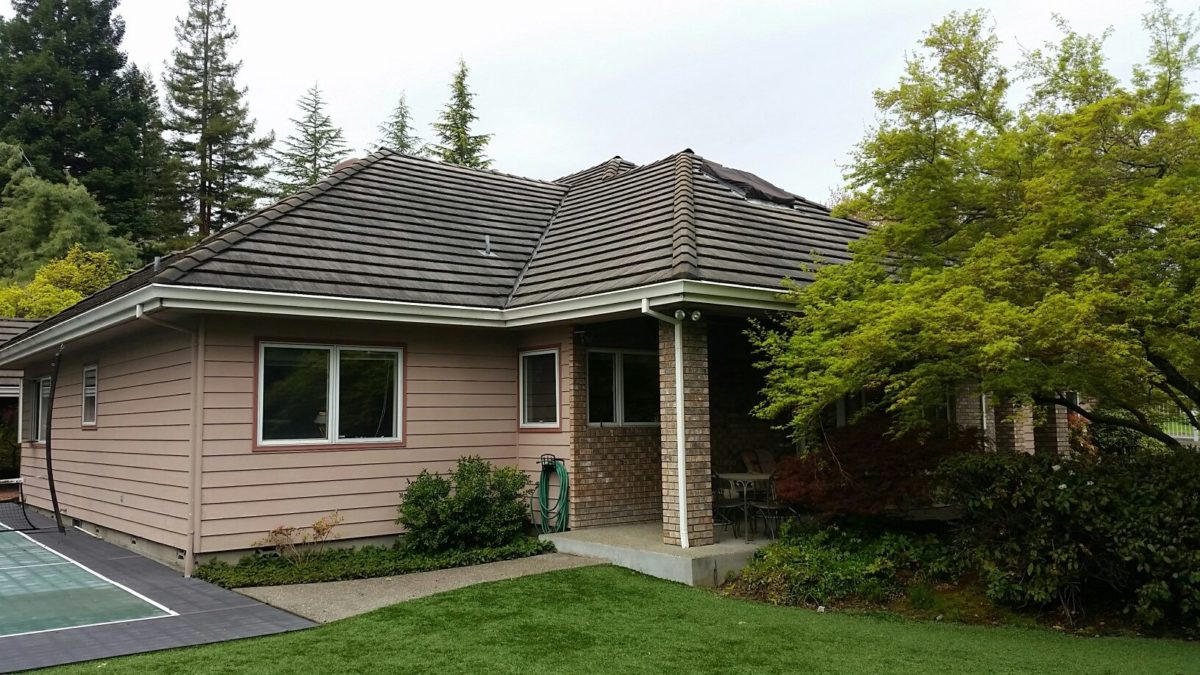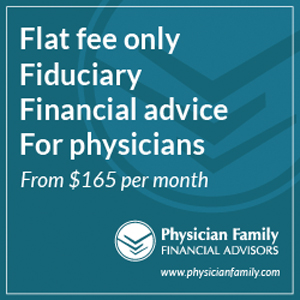This time of year, many physicians are moving and buying new homes. It will likely be their first home. My oldest son bought his first rental house before he even moved out of our house. Then he bought another one shortly before his wedding. After the wedding, he moved into it with his new bride. I’m proud to say he used good sense and bought something well within his budget and a bonus was having the appraisal come in significantly higher than his purchase price. My youngest son also purchased his first rental before moving out. Many people make a critical mistake at this juncture and end up crippling their finances for decades. They buy the house of their dreams instead of the house of their budget.
Today both of my kids (early 30s) own a combined total of five houses and an empty lot where a four plex is being built. They have no debt on any of those properties. One son will be building the four plex himself, and the other son is doing a complete remodel of the home he lives in. Seems they have been listening when I talk about being debt free, living within your means, owning cash flowing real estate, and seeking value with each purchase.
(Check out my latest podcast with Jim Dahle of The White Coat Investor. We discussed how I retired early, the concept of enough, and my latest book, The Doctors Guide to Finding Joy in Your Work.)
It’s easy to get caught up in the house-buying frenzy, especially as a physician, and end up with too much house for our budget, making us house poor. After so many years of depriving ourselves during our training, we finally start making money and feel we deserve a nice house. But at what cost? Does having five acres instead of one really make us happier? Will 5,000–10,000 square feet improve our well-being more than 3,500 square feet? If we bought the house for our family, but then we work extra shifts to earn the money to pay the mortgage and never see them, who are we kidding?
If we get overextended with too much house, there won’t be enough money left for all the other things we need and would like to have. What will have to be eliminated? The dream car? New clothes? Vacations? Retirement savings? Our children’s college fund? Make no mistake, the extra money will have to be pulled from something. Is it really worth the trade?
How will our children feel when we tell them we would like to help them with their college costs, but instead we put the money into an expensive house that they got to enjoy growing up in? Did they enjoy the yard more than they would enjoy a college education without debt? Would you? Would our children enjoy going on vacation without one of their parents, who had to stay home working to make the house payment? Would you have enjoyed that?
When I get ready to take a patient to surgery, I explain the procedure, alternatives, and risks. Only after I’m certain they understand what they are getting into, will I be satisfied if they make a decision to opt out of a needed surgery.
The same goes for your house purchase. Make sure you have counted the costs, checked the procedure, alternatives, and risks, and realized what you will be giving up having that house. Otherwise, after buying too much house for your budget and struggling financially for the rest of your life, you may look back with regret.
A few house buying tips:
1. Buy a house only when it fits into the plan.
If that means renting while getting on firm financial footing (e.g., not drowning in debt), that’s OK. Expanding your lifestyle slowly will allow you to get all the pieces in place before committing to the house payment. If you commit too soon, before you have accounted for everything in the spending plan—like disability and life insurance payments, for example—you may find yourself with too little money left to get everything you need. If you buy too soon, you may not be able to pay off your student loans quickly, and will pay unnecessary interest on them for years.
2. Don’t buy a house as a resident or new attending.
Wait until you know you are in a practice you’ll want to stay in for more than five years. Avoid the forced sell at the end of residency, or if you discover you don’t like the job you picked. The market might be down and you don’t need the extra hassle at that point in your life.
3. Don’t take on a home mortgage greater than two and one-half times one spouse’s income.
This will leave plenty of space in the spending plan for all the other things life throws at you. It also keeps the two-wage-earning family safe if one of them loses their job. If you are in a higher-paying specialty, use an even lower multiple of your income. Our first home had a mortgage of less than 1.5x my income. Our second home, which we have lived in for 28 years now, had a mortgage of less than 2x my income. And we paid it off in four years.
4. Don’t buy a house to keep up with the Dr. Joneses; buy a house that meets your needs.
The Dr. Joneses of the world are going broke—you don’t want to be like them. Fully understand what you need and what you can afford, and let those issues guide you more than what you want or what the bank will loan you.
5. Pay off the mortgage as fast as possible and then start earning interest instead of paying interest.
The quicker you turn interest around and have it work for you instead of against you, the quicker you will reach your financial goals.
6. Never think of your personal residence as an investment. It’s an expense.
Always work to minimize expenses. If you think of it as an investment, it will taint your decision. You may get a bigger house to make a better investment, and the added accompanying expenses could push you into a self-imposed financial hardship.
7. Never treat your house like a piggy bank, harvesting equity or taking a second mortgage to buy something.
No car, boat, motorcycle, motorhome, or any other toy is worth putting your home at risk of foreclosure. None of those things feels as good as being debt-free.
8. Never get an adjustable-rate mortgage.
It’s not worth the risk. Many people have lost their houses because of interest rate increases. Most people stretch their budget to the max to buy a house, leaving no room for the adjustable rate to adjust the payments higher. When it happens, you may end up in foreclosure.
9. If you find your house is too expensive and is choking out your spending plan, sell it.
It is not worth the trouble it is causing you. The earlier you make the move, the better. It’s only a building; you can find another one. One that fits into your income better and creates much more happiness. Once you realize you are on the wrong train, the quicker you get off, the cheaper the ticket will be to get you where you want to be.
Never let a house become a ball and chain attached to your leg.
Make it instead a sanctuary of peace and tranquility.
If you need more information, check out my book “The Doctors Guide to Eliminating Debt” so you can stop managing debt and start eliminating it. Also helpful to get you on the right path when you leave residency or change jobs is “The Doctors Guide to Starting Your Practice Right.”




